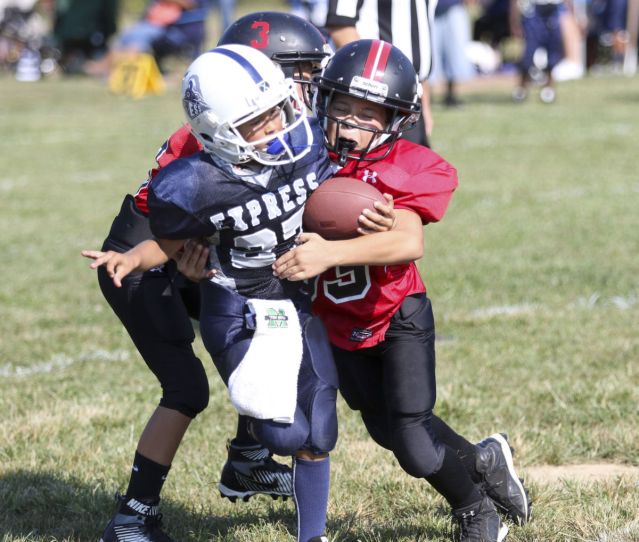Boston University Studies Claim Future Risk of Depression
By: Eric Ransom

Parents may begin to reconsider having their children play tackle football in light of a recent study. (Herald Dispatch)
Bombshell information has been released suggesting that children who play football can develop brain problems- even more so than adults.
A study at Boston University, stemming from 2015, reveal that symptoms of clinical depression can develop more often in athletes who begin playing tackle football before the age of 12, as opposed to those who start after turning 12 and beyond.
The study took information from 214 former players, including 68 who played professional football.
Because of the rapid growth a brain goes through from the ages of 10-12, children are more susceptible to brain damage and behavioral changes later in life, due to their growth being altered by violent helmet to helmet contact.
Kids in the 8-13 year-old range are two to three times as likely to suffer brain dysfunction as adults from blows to the head.
This coincides with the ongoing controversy in the NFL regarding the safety of their players with the ever increasing findings of CTE, or Chronic Traumatic Encephalopathy, in current and former players.
Now that detrimental information on our youth is being unveiled, the debate on whether children should play tackle football has come to the forefront.
“We found [it] to be pretty remarkable,” said Michael Alosco, head author of the study, concerning the details of the data.
CTE found in NFL players come with severe head injuries over a period of time, eventually leading to memory loss, severe headaches, depression, and even suicidal thoughts. Some players have successfully committed suicide as a result.
In September, it was revealed that former NFL star-turned-felon Aaron Hernandez, who killed himself in his jail cell, suffered from CTE and had his diagnosis hidden from the NFL and his team, the New England Patriots, sources say.
CTE is all too common among players like Hernandez, as 99% of donated brains from deceased NFL players had some degree of this condition.
In another Boston University study earlier this year, researchers tested on 111 brains of dead football players, and 110 provided results showing evidence of CTE.
Despite these recent findings, youth football participation numbers steadily declined since 2009, dropping 20 percent- until recently.
Numbers have increased by just over a percent since 2015, leading up to the information released just within the past month.
The NFL in response to the CTE crisis has encouraged that children play flag football in place of tackle, ensuring a safer way to play the game and protecting their bodies.
Robert Cantu, a professor of neurology at Boston College, says that the hits on young developing brains “…can keep your brain from reaching its genetically-endowed potential.”
Although this is quite a remarkable study, the data is quite limited, as it is just a single study.
As future data comes out on the issue, a more definitive answer can be determined on whether or not children are most at risk of future health issues, but the information provided still has cause for major concern.
“We must avoid any kneejerk reactions to single studies”, urges Professor Yorgos Tripodis, also a researcher in the Boston University study. “But at the same time, research on the effect of football on the brain is at a point where it can’t be ignored.”
Categories: Sports


Again so informative and well written. Looking forward to reading all your articles. Your biggest fan!!!!!